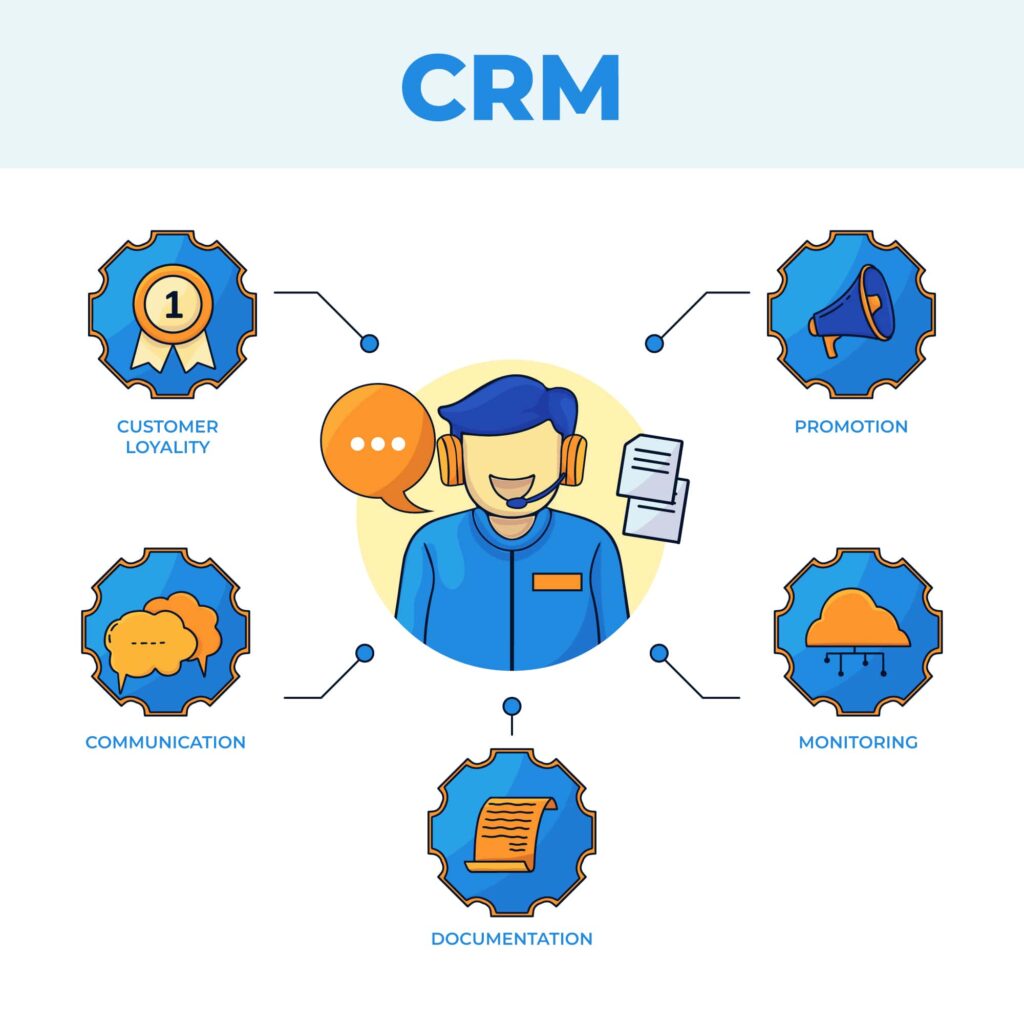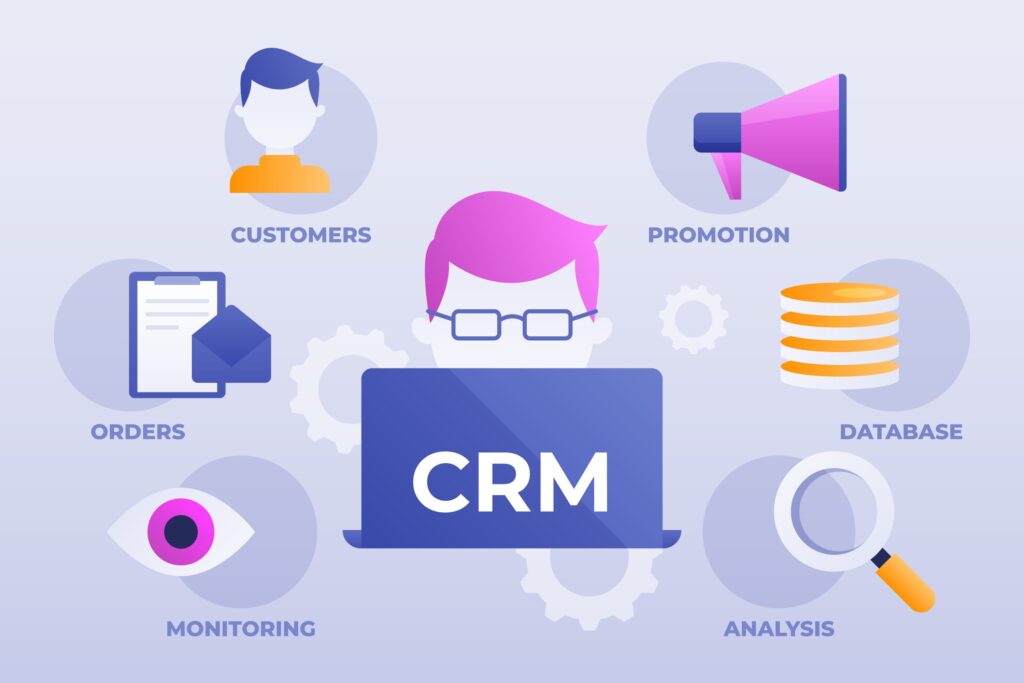Businesses have to rely on multiple systems for managing their business operations efficiently. Customer relations, financial situation, operational management, and other aspects of business cannot be smoothly managed using one system. This is why, in this increasingly digital world, many businesses face data inefficiency, delays, and missed opportunities. Integration of two or more systems brings cohesiveness and enables streamlined workflows.
This is where Microsoft Dynamics 365 comes into play. It offers great CRM and ERP solutions and stands out as a powerful business management platform from other competitors. But to unlock its true potential and take the most benefit from it, you would have to integrate it with other systems and applications. One of the most powerful Microsoft Dynamics 365 is Microsoft 365 Business Central, followed by Microsoft Power Platform.
What Is Microsoft Dynamics Integration?
When we talk about Microsoft Dynamics integration, it means we talk about connecting it with applications such as CRM (Customer Relationship Management), Business Central, Finance, and other services like Microsoft Power BI, Power Apps, Power Virtual Agents, and more. This integration allows businesses to share data and other information across departments and systems seamlessly, enabling smooth and fast collaboration.
The integration process is not always straightforward. So, here are the integration types that businesses usually opt for.
Native Microsoft integration services use Microsoft’s built-in connectors. Middleware integration is to connect Dynamics with other platforms like Power Automate, Azure Logic Apps, or third-party tools. Then we have custom integration to connect the platform with legacy applications or some other industry-specific software.
Integration creates a unified system where information can easily and smoothly flow. This method reduces manual work, minimizes errors, eliminates data duplication, and increases productivity.
Why Businesses Need Microsoft Dynamics Integration
Managing business with a disconnected system not only increases chances of making the wrong decision but also causes errors due to data silos and inconsistent and duplicate data. This Microsoft Dynamics integration makes operational management easier and faster, and allows you to make informed decisions rapidly.
Here’s why integration is a strategic necessity
If the integration is done right, businesses will be able to
- Access real-time data, improving collaboration
- Make informed decisions based on real-time data
- Increase operational efficiency with workflow automation
- Reduce administrative tasks and workload
- Minimize human intervention and errors
The Value of CRM Integration

Now you might be thinking, what benefits do you get from integrating Dynamics CRM with other services and platforms like ERP systems, marketing services, and more? So, let’s get your doubts clear by outlining a few key benefits.
1. Productivity Improvement
Dynamics CRM integration automates repetitive tasks like data entry, follow-up emails, and report generation and submission to improve overall productivity. This integration not only frees up resources but also saves budget and allows you to spend time and money on higher-value tasks.
Integrating business systems eliminates the need to manually update data, reducing the chances of error. Microsoft Dynamics integration streamlines businesses for faster workflow and decision-making.
2. Data Analysis & Accuracy Improves
Microsoft CRM integration manages data from a central database, providing the organization with consistent, unified data. Moreover, it ensures data is accurate and up-to-date, so businesses can always rely on the data presented. Additionally, it provides valuable insights and detailed reports for tracking KPIs and identifying trends for informed decision-making.
3. Improved Collaboration and Communication:
Microsoft Dynamics CRM integration enables easier information access, reducing effort, improving collaboration, and boosting results across the organization. In return, the integration process improves customer satisfaction and increases sales.
4. Boosting Customer Satisfaction & Sales
Accurate and updated data allows sales teams to personalize their approach, choose the right customers, and close more deals. This enables them to provide personalized services and increase customer satisfaction. So, through Microsoft Dynamics integration, businesses can personalize marketing, recommend the right products, create engaging and satisfying expensive, leading to customer loyalty
5. Increasing Business ROI
Microsoft integration services offer access to data analytics, enabling businesses to increase efficiency, sales, and ROI. Moreover, automation reduces the workload and streamlines processes, reducing operational costs and improving profits.
Common Integration Scenarios
1. Integration with Marketing Platforms
Microsoft Dynamics 365 integration with marketing platforms helps with data sync. Thus, synced data can be used for generating and tracking leads, segmenting customers, targeting specific audiences, and monitoring to improve campaign performance.
2. ERP and Accounting System Integration
Dynamics CRM integration with ERP systems like Microsoft Business Central, Dynamics NAV, and more ensures accurate and consistent data across the organization. This data can be used to track cash flow, enable real-time sales forecasting, and offer better customer service with instantly available customer data.
3. E-commerce and Web Portal Integration
Integrating with e-commerce platforms such as Shopify, Magento, or other custom web portals improves sales. It does so by providing customers with order status and tracking options, automating processes like inventory updates, order updates, etc., and syncing product pricing.
4. Communication & Collaboration Tools
Microsoft CRM integration with Microsoft Suite applications such as Microsoft Teams, Outlook, and SharePoint can give you more power and full visibility. Thus, you can access customer data from anywhere, schedule meetings from CRM, follow up directly, and much more.
5. Industry-Specific or Legacy System Integration
If you are worried about integration with an industry-specific or custom platform, then worry not because Microsoft Dynamics integration can take care of it as well. Now you can prevent manual data entry and data duplication while maintaining operational efficiency.
Benefits of Microsoft Dynamics Integration

1. Enhanced Operational Efficiency
Shifting to automated data transfer and communication between systems eliminates the need for administrative work and overhead costs. Meaning spending more time on value-added tasks.
2. Real-Time Data Flow
The Microsoft Dynamics CRM integration system also ensures a seamless flow of information between departments, keeping everyone on the same page. Whether you are from sales or handle customer interactions, you would have access to update data instantly.
3. Better Customer Experience
Access to up-to-date customer profiles enables your employees to offer instant and improved service. From sales to marketing and support teams, everyone can coordinate easily, reducing friction in the customer’s journey.
4. Streamlined Reporting
Centralized data gives you a 360-degree view of the business and enables faster reporting and better forecasting. As a result, you can improve business planning and strategically scale your business by grabbing opportunities.
5. Increased Sales & Marketing Alignment
With Microsoft integration services, organizations can prioritize tasks however they like. From tracking user engagement to converting prospects, everything will be at your fingertips.
6. Improved Financial Management
Microsoft Dynamics integration with ERP and other accounting systems ensures accurate financial reporting. Thus, businesses have better control over their financial situation.
7. Reduced Data Silos & Duplication
Having a unified platform means no more data duplication. Leading to better compliance management and increased performance with instant decision-making.
8. Greater IT Scalability & Flexibility
With Microsoft CRM integration, your business becomes flexible and future-proof. It enables growth free of obstacles and minimizes disruption and downtime.
9. Enhanced Compliance & Security
Simplify audit reporting, enable role-based access control, and comply with privacy and data management laws by simply integrating Microsoft Dynamics with your existing systems and tools.
10. Future-Proofing Technology Stack
Microsoft Dynamics offers a modular structure, ensuring development and improvement with technological upgrades and business demands.
Challenges in Microsoft Dynamics Integration & How to Overcome Them
1. System Compatibility Issues
Legacy systems are not designed for integration, especially with foreign systems. Thus, using middleware is important when integrating with custom applications and APIs.
2. Data Mapping & Transformation
Mapping data on different software often raises format conflicts. Hence, the need for reliable and certified Microsoft integration services.
3. Compliance & Localization
Businesses have to comply with region-specific rules, so they should work with a local partner who understands the language, tax, and other compliance requirements.
4. High Implementation Costs or Delays
Finding an experienced and Microsoft-certified partner is as important as anything else. Without an experienced partner, collaboration and data flow issues may arise.
Why Work with Microsoft Dynamics Integration Partners
Implementing a successful and seamless Microsoft Dynamics integration strategy needs experience and expertise. Planning, understanding business requirements, and post-deployment support are critical services to ensure long-term growth.
When searching for the right partner, ensure they have certified consultants and developers. They have relevant industry experience as well as knowledge of local regulations.
Dynamics Solution brings certified expertise and years of industry experience. Moreover, our end-to-end support includes analyzing the challenge, proper planning, development, and ongoing support.





